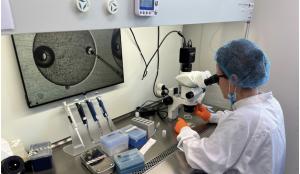The small satellites industry is one of the fastest growing fields space exploration, seeing a 205% increase in the last year alone, according to a recent report by SpaceWorks. As is the case in any field, certain industry requirements are in already in place, and not all newcomers may be away of what they are. That is, until now.
In order to help the growing smallsat industry, the International Organization for Standardization (ISO) has published the first-ever international technical specification for small spacecraft, which details the minimum requirements that every small spacecraft must comply with, regardless of its mission.
The ISO, a global network with thousands of international members (national standards bodies from 161 countries) engages experts from around the world to develop international standards for various industries, ranging from food to soap to space exploration. Typically, experts that develop ISO standards actively work in their chosen field.
This latest document, the ISO/TS 20991, Space systems – Requirements for small spacecraft, details the requirements for various stages of the small spacecraft system life-cycle is both essential for newcomers to the smallsat industry sector and a useful reference tool for those already working in the small spacecraft industry.
Paul Gill, Chair of the ISO technical subcommittee that developed the document, said that up to 2 600 small spacecraft are estimated to launch over the next five years, many of them made by new operators. “ISO/TS 20991 will be of great benefit to small spacecraft developers, as well as launch operators, by providing the minimum requirements to ensure their safety and debris mitigation,” he explained. “It covers everything from the design, launch, deployment, operation and disposal, which will also give newcomers to the industry a means to access space, typically the domain of large companies and governments.”
ISO/TS 20991 was developed by ISO technical committee ISO/TC 20, Aircraft and space vehicles, subcommittee SC 14, Space systems and operations, whose secretariat is held by ANSI, ISO’s member for the USA.











